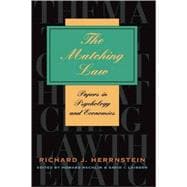
Note: Supplemental materials are not guaranteed with Rental or Used book purchases.
Purchase Benefits
What is included with this book?
| Preface | |
| The Unquiet Judge: Activism without Objectivism in Law and Politics | |
| Making (Up) the Truth: Constructivist Contributions | |
| Belief and Resistance: A Symmetrical Account Doing without Meaning Unloading the Self-Refutation Charge | |
| The Skeptic's Turn: A Performance of Contradiction Arguing with Reason | |
| Appendix: Webs of Reason Microdynamics of Incommensurability: Philosophy of Science Meets Science Studies | |
| Notes | |
| Index | |
| Table of Contents provided by Publisher. All Rights Reserved. |
The New copy of this book will include any supplemental materials advertised. Please check the title of the book to determine if it should include any access cards, study guides, lab manuals, CDs, etc.
The Used, Rental and eBook copies of this book are not guaranteed to include any supplemental materials. Typically, only the book itself is included. This is true even if the title states it includes any access cards, study guides, lab manuals, CDs, etc.